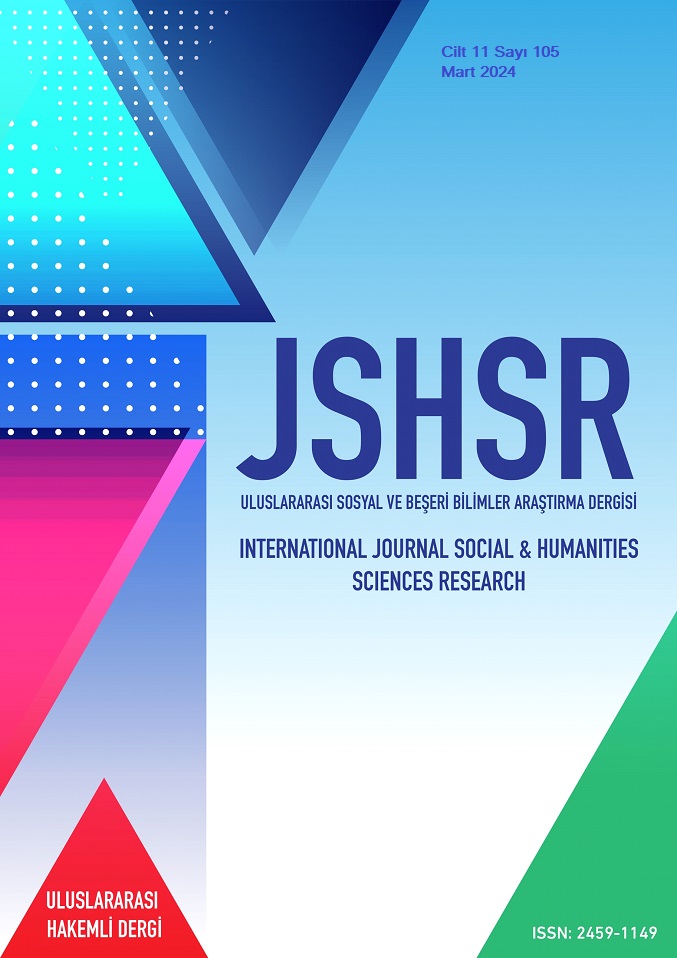Over-tourism and Destinations Fighting Over-tourism
DOI:
https://doi.org/10.5281/zenodo.10926569Keywords:
Tourism, Overtourism, DestinationsAbstract
The issue of overtourism is an issue that frequently comes to the fore both in tourism literature and destination management. Overtourism means that a destination receives more visitors than its capacity at certain times or exceeds its carrying capacity. The aim of this study is to examine some of the destinations in the world that struggle with overtourism within the framework of what is happening. Within the scope of the purpose of the study, some important destinations from around the world were selected as examples. A literature review was conducted regarding these destinations. Through the information obtained; The problems that destinations experience due to overtourism and the practices of destination management to solve these problems have been determined. According to the findings; It has been determined that the problems experienced by the destinations and the measures they take are generally similar. It has been determined that many factors affect the excessive demand for destinations. In addition, it has been determined that there is an influx of visitors to the destinations beyond the carrying capacity. Overtourism in destinations; It has been found that physical, ecological, psychological, economic and social carrying capacities are exceeded. However, the opinion has emerged that each destination should take different measures according to its unique characteristics. Within the scope of the subject, suggestions have been made to the authorities and relevant persons.
References
Ajuntament de Barcelona, (2016). Tourism statistics Barcelona: City and region, Ajuntament de Barcelona-Barcelona Turisme, Barcelona.
Baum, T. (2015). Overcoming seasonality, 3rd UNWTO conference, Organización Mundial del Turismo - UNWTO, Madrid - Spain.
Bédi, A. (2021). Analyses of stationary traffic organization in Český Krumlov, Diplomová Práce, Univerzita Pardubice Dopravní Fakulta Jana Pernera.
CE-Traffic, (2019). Návštěvnost Města Kutná Hora v Roce 2018, CE-Traffic, Praha.
Czech Tourism, (2017). Best of the Czech Republic, Česká Centrála Cestovního Ruchu, Prague.
Czech Statistical Office (CZSO), (2023). Occupancy in accommodation establishments by category-territorial comparison. https://vdb.czso.cz/vdbvo2/faces/en/shortUrl?su=f386ec5b
Cunado, J., Gil-Alana, L. A. ve Perez de Gracia, F. (2004). Modeling monthly spanish tourism: a seasonal fractionally ıntegrated approach, Tourism Economics, 10(1), 79-94.
Çam, O. ve Çelik, C. (2022). Aşırı turizm kapsamında turistlere yönelik olumsuz ifadeler, yapılan eylemler ve bunların turizme yansımalarının değerlendirilmesi, Çağ Üniversitesi Sosyal Bilimler Dergisi, 19(1), 66-84. https://dergipark.org.tr/cagsbd
Çolak, O., Kiper, V. ve Batman, O. (2020). Ölçüsüz Turizm’e (Over-Tourism) dair kavramsal bir yaklaşım, Akademik Araştırmalar ve Çalışmalar Dergisi, 12(23), 609-621.
Dodds, R. ve Butler, R. (2019). Overtourism: issues, realities and solutions, De Gruyter, Berlín - Boston.
Doğan, M. (2013). Bir kriz faktörü olarak taşıma kapasitesi aşımı ve Bozcaada örneği, Trakya Üniversitesi Sosyal Bilimler Dergisi, 85 - 108.
Dušek, J. (2020). Principles, starting points, measures and instruments of overtourism in europe: A case study, topical issues of tourism overtourism - risk for a destination, College of Polytechnics Jihlava, Vysocina Tourism, Jihlava, 41-50.
Goodwin, H. (2017). The challenge of overtourism, Responsible Tourism Partnership Working Paper 4.
Goodwin, H. (2019). Managing tourism in Barcelona, Responsible Tourism Partnership Working Paper 1 (3rd edition).
Günel, D. Ö. (2009). Mevsimsellik, mevsimlik istihdam ve örgütsel bağlılık: Konaklama işletmelerinde bir araştırma, İşletme Fakültesi Dergisi, 199-219.
Hospers, G. J. (2019). Overtourism in European cities: from challenges to coping strategies, Ifo Institute – Leibniz Institute for Economic Research at the University of Munich, 2190-717X.
HOTREC – Hospitality Europe, (2018). Hotrec position paper on overtourism-putting sustainable tourism on top of the EU policy agenda for the benefits of society, Hotrec Position Paper.
Kharas, H. (2017). The unprecedented expansion of the global middle class, The Brookings Institution, Washington.
KPMG Česká Republika, (2017). Strategie cestovního ruchu českého krumlova, KPMG Česká Republika, s.r.o., Czech Republic.
Lim, C. ve McAleer, M. (2001). Monthly seasonal variations - Asian tourism to Australia, Annals of Tourism Research, 28(1) 68-82.
Milano, C., Cheer, J. M. ve Novelli, M. (2018). Overtourism: A growing global problem, The Conversation.
Peeters, P., Gössling, S., Klijs, J., Milano, C., Novelli, M., Dijkmans, C., Eijgelaar, E., Hartman, S., Heslinga, J., Isaac, R., Mitas, O., Moretti, S., Nawijn, J., Papp, B. and Postma, A., (2018). Research for TRAN Committee - Overtourism: impact and possible policy responses. European Parliament, Policy Department for Structural and Cohesion Policies, Brussels.
Seraphin, H., Sheeran, P. ve Pilato, M. (2018). Over-Tourism and the fall of venice as a destination, Journal of Destination Marketing & Management, 9: 374-376.
Staniscia, B., George, R. ve Lochner, K. (2020). Ambiente società territorio geografia nelle scuole, Rivista Dell’associazione Italiana Insegnanti Di Geografia, Roma.
Turkle, S. (2015), Recleaming conversation, New York Basic Books, New York.
UNWTO - World Tourism Organization (2016). UNWTO annual report 2016, World Tourism Organization (UNWTO), Madrid.
UNWTO – World Tourism Organization (2019a). International tourism highlights, World Tourism Organization (UNWTO), Madrid.
UNWTO - World Tourism Organization (2019b). Overtourism? understanding and managing urban tourism growth beyond perceptions - Volume 2: Case Studies, World Tourism Organization (UNWTO), Madrid.
Vagena, A. (2021). Overtourism: Definition and impact, Academia Letters, Article 1207.
Vikipedi, (2015). Vandallık. https://tr.wikipedia.org/wiki/Vandall%C4%B1k
Yıldız, Ö. E. (2022). Aşırı turizmde yerel halk – ziyaretçi etkileşimi, Foça örneği, Balıkesir Üniversitesi Sosyal Bilimler Enstitüsü Dergisi, 25 (47) , 293-315. https://doi.org/10.31795/baunsobed.1039275
TDK, (2022). Türk dil kurumu sözlükleri. https://sozluk.gov.tr/
WorldData, (2023). Tourism in Italy. https://www.worlddata.info/europe/italy/tourism.php
Downloads
Published
How to Cite
Issue
Section
License
Copyright (c) 2024 INTERNATIONAL JOURNAL OF SOCIAL HUMANITIES SCIENCES RESEARCH

This work is licensed under a Creative Commons Attribution 4.0 International License.


